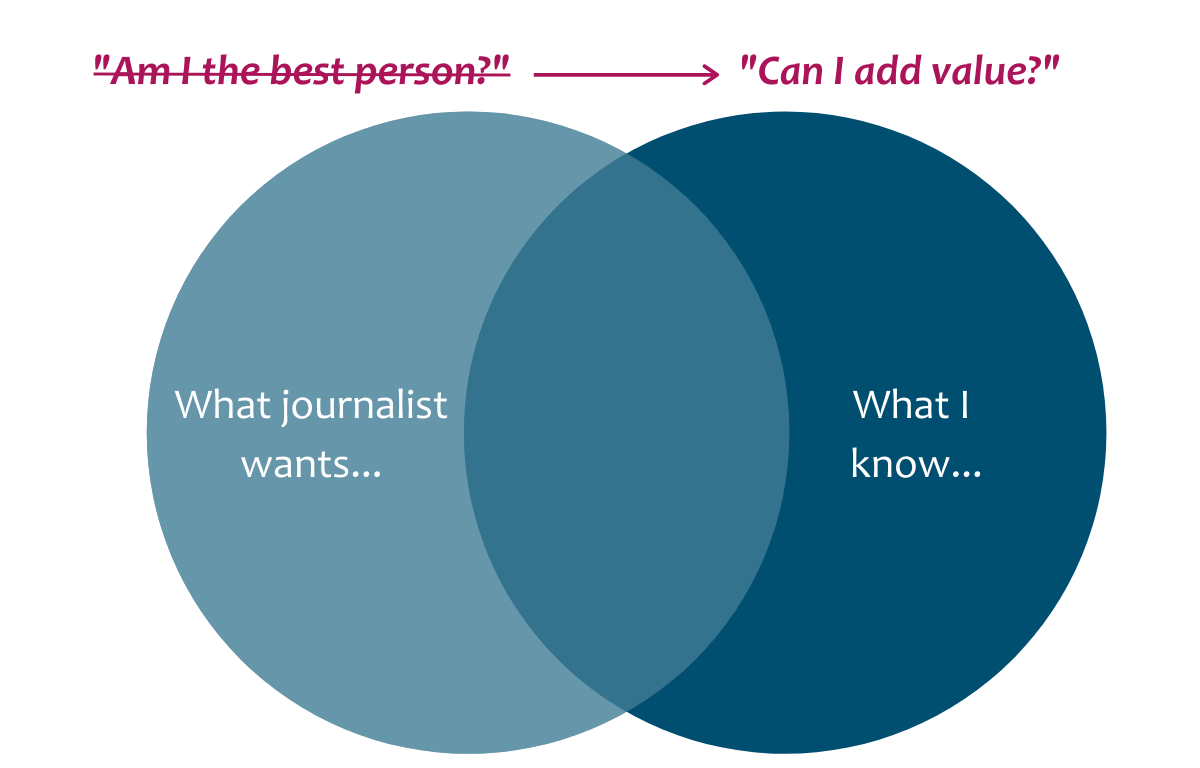People are considered sufficiently knowledgeable to speak to the media based on a variety of different criteria — and the relevant qualifications differ from one story or profession to another.
What’s most important is can you add value to people’s understanding of the issue?
For example, a mother who raised an autistic child may offer as much or more insight to a particular story as an accredited health provider. A woman who has lived experience as an immigrant to Canada can offer valuable nuance and emotional context that wouldn’t necessarily be available from an expert who conducted research in the field.
The test is whether or not you can answer “yes” to some of the following questions:
Have you:
-
- relevant personal experience?
- relevant professional experience?
- relevant educational credentials?
- published thought leadership pieces on this issue?
Are you:
-
- currently working or volunteering in this area?
- accredited by a relevant institution or professional organization?
- affiliated with an organization active on this issue?
- doing related research?
- recognized by others as being knowledgeable in this area?
If you can answer “yes” to some of these questions, if you believe your experience-informed insights might help people better understand the issue, if a reasonable person, upon learning of your relevant credentials or experience would recognize your credibility on related issues, then you can respond to a journalist’s query by saying
“Here’s what I could talk about…”
This gives you the opportunity to define the aspect of the topic that you’re qualified to speak about without having to claim status as “an expert”.
Are you ready to say ‘yes’ to media interviews?
Being included in the Informed Opinions database means agreeing to respond to journalists’ requests. The women we feature recognize the value of having an amplified voice in terms of the potential it offers them to increase their profile, credibility and capacity to exert influence on the issues they know and feel strongly about. Many are pro-actively seeking to share their insights through blogs, opinion pieces and speaking engagements. You can apply here to join the database.
If you have informed opinions but are not sure you’re “media-ready”, we offer programming and resources to help you develop the skills necessary to effectively share your knowledge with a broader public.
Subject matter expertise isn’t always accompanied by training in how to craft thought pieces, frame analyses into accessible, short-form commentary, or package insights into sound bites.
Informed Opinions helps women to overcome these obstacles by delivering targeted, practical workshops that equip experts with the capacity to more efficiently and effectively share their valuable knowledge with the broader community. You can search our database of sources here, designed to make women’s insights easier for journalists to find.

